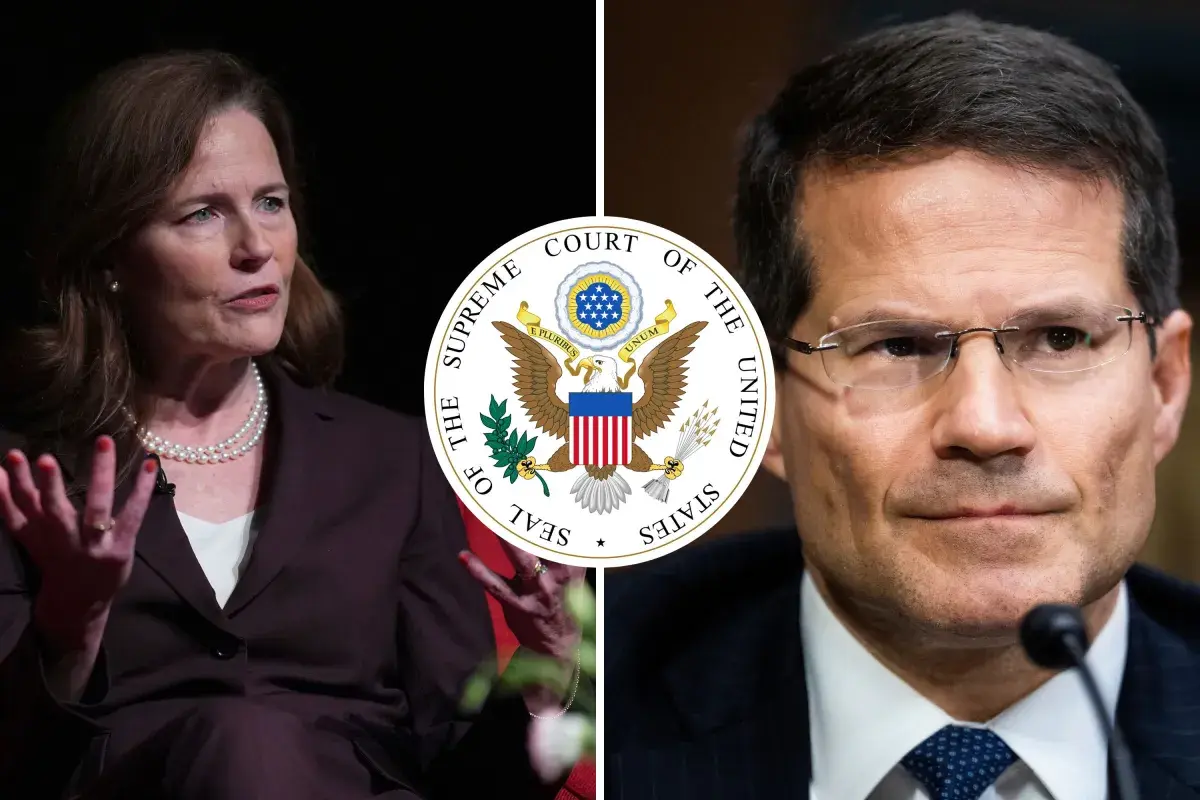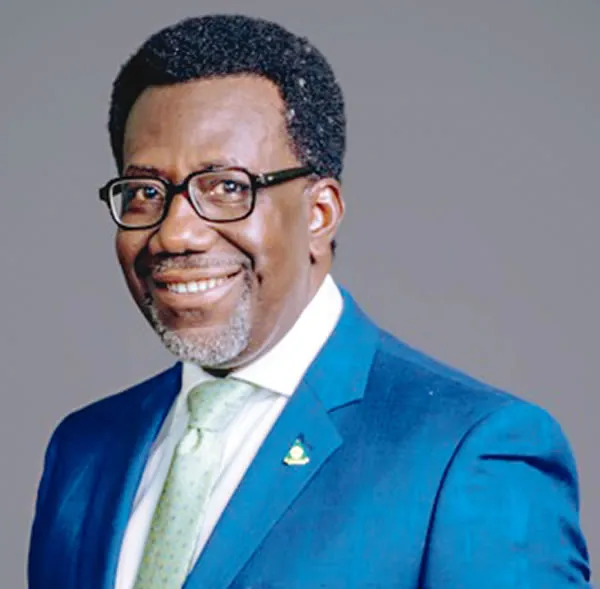Copyright Newsweek

A pointed exchange between Justice Amy Coney Barrett and Solicitor General D. John Sauer stood out during Wednesday’s Supreme Court hearing on President Donald Trump’s use of emergency powers to impose sweeping global tariffs—a moment that went largely unnoticed in initial coverage. Barrett interrupted Sauer as he argued that the 1977 International Emergency Economic Powers Act allowed the president to “regulate importation” by imposing duties. She pressed back, suggesting that such a reading would transform a narrow emergency statute into a broad grant of taxing power, effectively letting the president impose global tariffs without clear authorization from Congress. Newsweek contacted the Office of the Solicitor General and attorneys for the private business plaintiffs for comment via email outside of normal office hours on Thursday. Why It Matters At stake in Trump v. V.O.S. Selections is far more than the legality of a single trade policy. The Supreme Court’s ruling will determine whether presidents can invoke emergency powers to unilaterally reshape U.S. trade and economic policy—potentially altering the balance of power between the White House and Congress. By testing whether the same conservative justices who curtailed Biden-era executive actions will apply those limits to a Republican president, the case has become a pivotal measure of the Court’s consistency on executive authority and the future scope of presidential power itself. What To Know The case, Trump v. V.O.S. Selections, Inc., centers on the scope of presidential authority under the International Emergency Economic Powers Act (IEEPA), a 1977 law allowing the president to regulate certain transactions during a declared national emergency. Trump invoked the statute in early 2025 to impose tariffs of up to 125 percent on imports from dozens of countries, citing persistent trade deficits and the flow of fentanyl across U.S. borders as “unusual and extraordinary threats” to national security and the economy. Barrett Presses Trump’s Lawyer On Tariff Authority During oral arguments, Sauer defended the administration’s position that the phrase “regulate importation” in IEEPA includes the power to impose tariffs, describing duties as “the most common way a government regulates imports.” But Barrett, herself a Trump appointee, pressed him repeatedly on whether that interpretation had any precedent. “Can you point to any other place in the code—or any other time in history—where that phrase, together, ‘regulate importation,’ has been used to confer tariff-imposing authority?,” Barrett asked, according to the court transcript. When Sauer cited a case from the Nixon administration, Barrett cut him off. “That was an intermediate appellate court,” she said, underscoring that no Supreme Court precedent had endorsed such a reading. The exchange signaled a rare moment in which a conservative justice challenged the administration’s expansive interpretation of presidential power. The arguments unfolded over more than two and a half hours, with Chief Justice John Roberts and several conservative colleagues expressing concern about the breadth of the government’s position. Roberts questioned whether the administration’s justification amounted to “a power to impose tariffs on any product, from any country, in any amount, for any length of time,” a characterization he called “a misfit.” A Rare Rift Within The Court’s Conservative Bloc It’s rare but not unprecedented for a Supreme Court justice to openly challenge the president who appointed them, particularly on questions of executive power. Barrett’s sharp questioning joins a short list of moments when conservative justices have rejected expansive claims from their own side—such as Chief Justice John Roberts blocking Trump’s census plan in 2019 and Brett Kavanaugh joining the majority against Trump’s immunity claim in 2020. While these instances show the Court’s conservative majority often aligns with Republican administrations, they also highlight a tradition of judicial independence when presidential authority itself is on the line. The Legal Stakes: Major Questions And Presidential Power The Court’s review follows an August decision by the U.S. Court of Appeals for the Federal Circuit, which struck down the tariffs in a 7–4 ruling. The majority concluded that IEEPA’s grant of authority to “regulate importation” did not extend to tariffs of “unlimited duration on nearly all goods from nearly every country.” The panel applied the “major questions” doctrine, reasoning that measures of such “vast economic and political significance” required clear congressional authorization. That doctrine, which the Supreme Court has invoked in recent years to limit broad executive actions, is meant to prevent the president from using ambiguous statutory phrases to justify major new regulatory or economic programs—a safeguard of the constitutional separation of powers. In practice, it curbs administrative and presidential overreach, requiring that Congress, not the executive, make the “major” policy calls. Trump’s legal team, led by Sauer, argued that IEEPA has long been understood to give presidents broad latitude to respond to foreign and economic crises. The petition filed with the Court describes the tariffs as necessary to “rectify America’s country-killing trade deficits and to stem the flood of fentanyl across our borders,” asserting that “the President has determined that those tariffs…are pulling America back from the precipice of disaster.” Neal Katyal, representing the small businesses and states challenging the tariffs, countered that tariffs are taxes—and that only Congress can impose them. “If Congress wanted to delegate its taxing power to the president, it would have said so clearly,” Katyal told the justices, referencing the constitutional assignment of taxing authority to the legislative branch. Barrett’s questioning of both sides extended beyond the statutory issue to the practical consequences of a ruling against the administration. “Would it be a complete mess?” she asked Katyal, referring to whether businesses might seek refunds for the roughly $90 billion in tariffs already collected, as reported by U.S. Customs and Border Protection. In earlier decisions striking down pandemic and student-loan measures, the Court invoked the “major questions” doctrine to require explicit congressional authorization for executive actions of major economic impact. A decision in Trump v. V.O.S. Selections is expected before year’s end. If the Court upholds the tariffs, it could mark the broadest affirmation of presidential economic authority in decades. If not, it would signal new limits on the use of emergency powers—and a rare break between the Court’s conservative bloc and the president who appointed half of it. What People Are Saying Solicitor General D. John Sauer, defending the administration’s position, said: “The President acted under the plain text Congress gave him—to regulate importation when the nation faces an extraordinary threat. That is exactly what he did here.” Justice Amy Coney Barrett, during questioning on whether the International Emergency Economic Powers Act gives presidents tariff authority, said: “You’re asking us to read ‘regulate importation’ as a blank check. If that’s what Congress meant, why didn’t it say so?” What Happens Next The Supreme Court is expected to issue a decision in Trump v. V.O.S. Selections before the end of the year, following an expedited hearing schedule. If it upholds President Trump’s use of emergency powers, his global tariffs—worth nearly $200 billion in revenue—will remain in place and greatly expand presidential authority over trade. A ruling against him could force the government to refund billions to importers, unravel parts of his trade agenda, and set new limits on how far presidents can invoke emergencies to act without Congress. Beyond the economic fallout, the case will test whether the conservative justices who curtailed Biden-era actions under the “major questions” doctrine will apply the same restraint to a Republican president.



